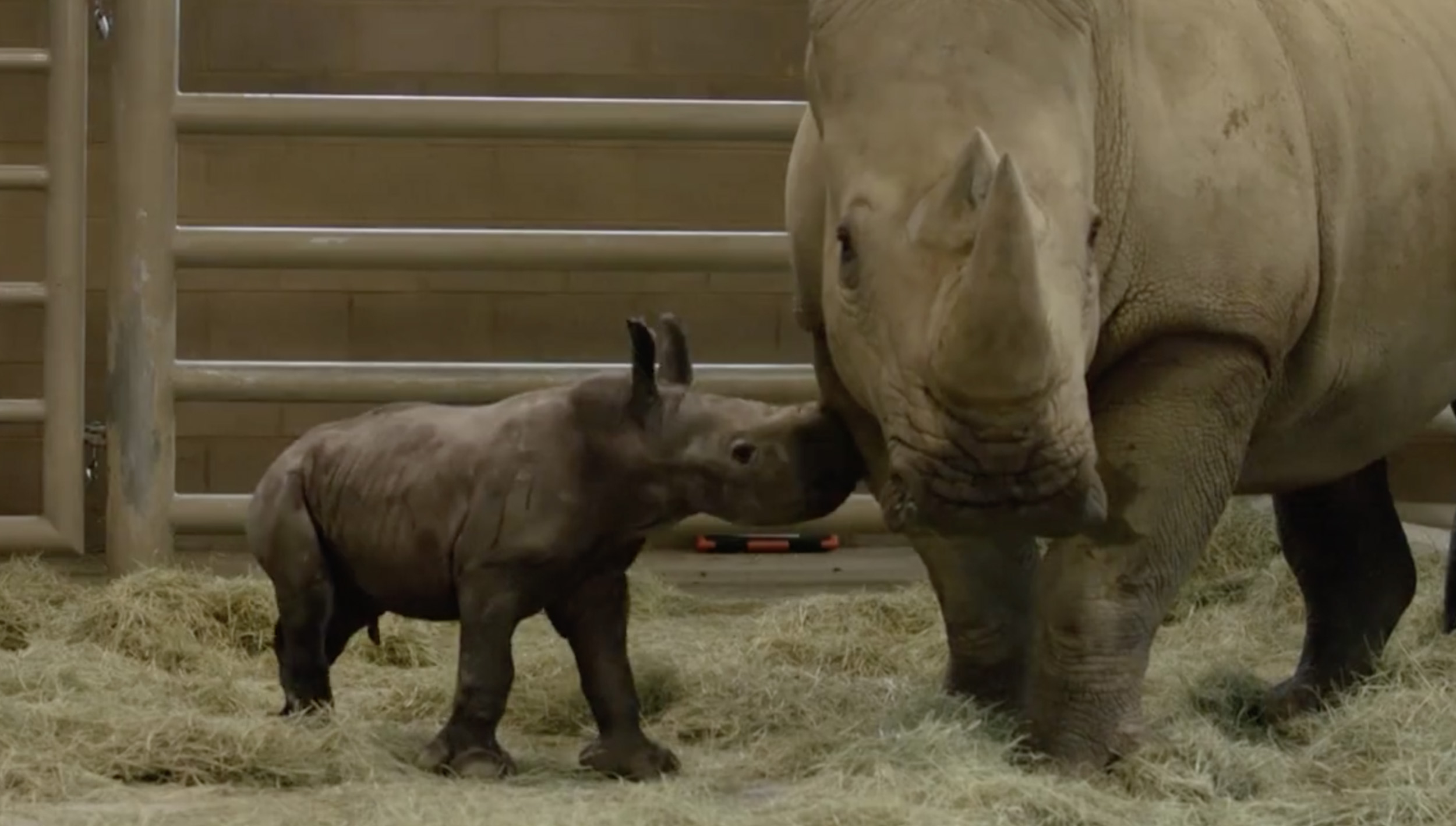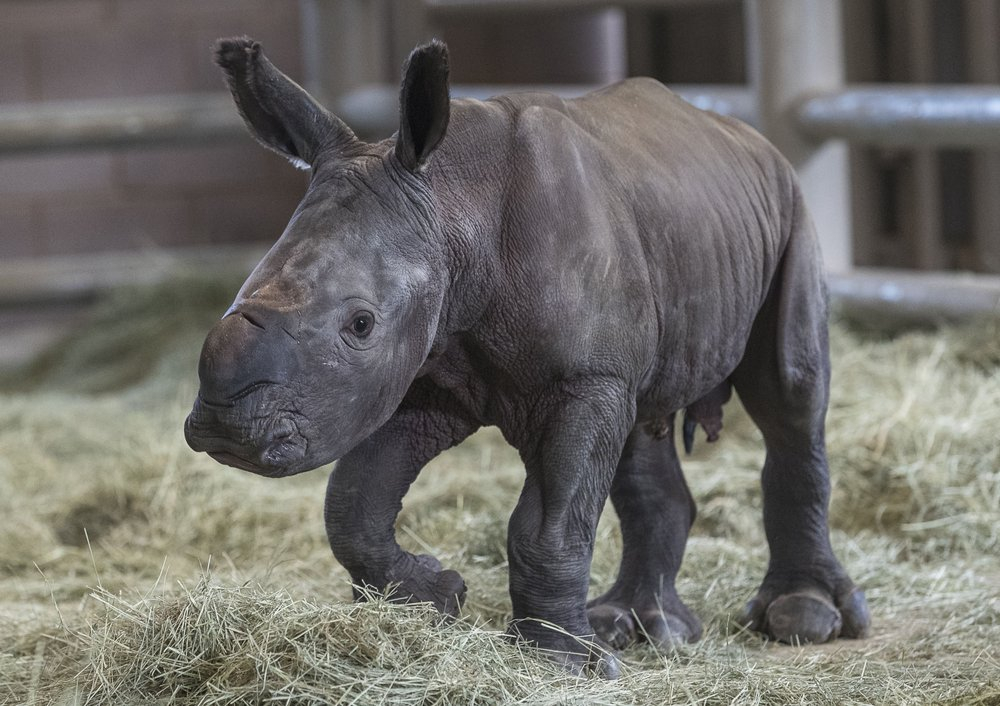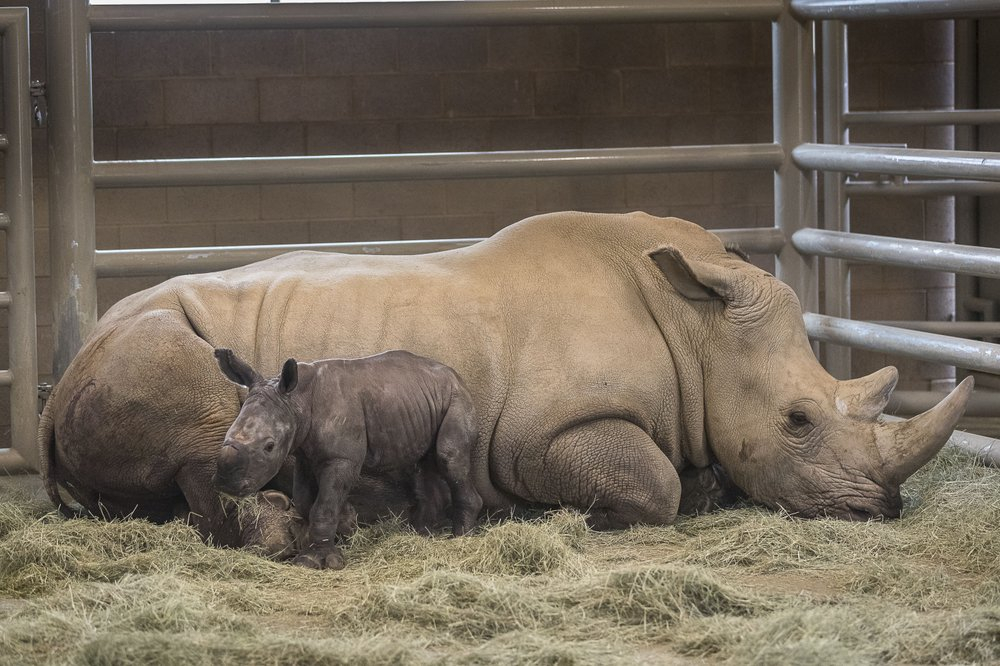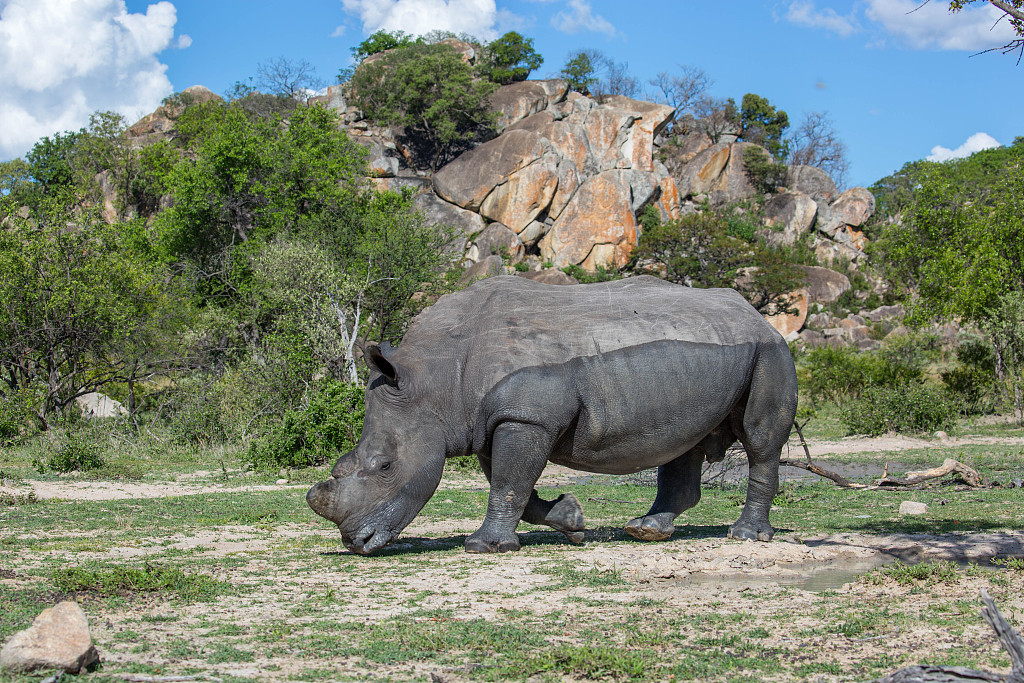

A conservation organization in San Diego says it has achieved the first successful artificial insemination birth of a southern white rhino in North America, an important step in saving another rhino species from extinction.
San Diego Zoo Global announced that mother Victoria gave birth Sunday to a healthy southern white rhino male calf in the barn at the San Diego Zoo Safari Park after 30 minutes of labor.
"All of us at San Diego Zoo Global are elated with the arrival of this special rhino calf," said Barbara Durrant, director of reproductive science at San Diego Zoo Global.

This photo provided by the San Diego Zoo shows a day-old southern white rhino calf standing on its wobbly legs at the Nikita Kahn Rhino Rescue Center at the San Diego Zoo Safari Park in Escondido, California, U.S., Monday, July 29, 2019. /AP Photo
Victoria was artificially inseminated with frozen semen from southern white rhino Maoto in March 2018 following hormone-induced ovulation. Victoria carried her calf for over a year – 493 days. Mother and calf will remain off exhibit to the public to allow them time to bond for now.
The calf will eventually be introduced to the other five female rhinos at the Nikita Kahn Rhino Rescue Center – including Amani, another rhino pregnant through artificial insemination due to give birth in September or October.
"Not only are we thankful for a healthy calf, but this birth is significant, as it also represents a critical step in our effort to save the northern white rhino from the brink of extinction," Durrant said.

A day-old southern white rhino calf stands beside its resting mother, Victoria, at the Nikita Kahn Rhino Rescue Center at the San Diego Zoo Safari Park in Escondido, California, U.S. /AP Photo
The northern white rhino is a distant subspecies of the southern white rhino. Only two northern white rhinos currently remain on Earth – both female.
Scientists say the southern white rhinos will be serving as surrogates for northern white rhino embryos. The reproductive system of rhinos is very complex, but researchers are optimistic that a northern white rhino calf could be born from these processes within 10 to 20 years.
In May, scientists at the Polish zoo Chorzow successfully completed a procedure where they transferred a northern rhino test tube embryo back into a female southern white rhino whose eggs were fertilized in vitro. However, the embryo transferred at Chorzow zoo is smaller than expected. It remains to be seen whether it will implant in the mother's uterine lining and result in a pregnancy.

A southern white rhinoceros (Ceratotherium simum simum) in Matobo National Park, Zimbabwe. /VCG Photo
"There are a lot of technical problems that will be solved, but it will take time," Cesare Galli, whose company specializes in artificial reproduction of horses, told The Associated Press in June.
The last male northern white rhino, named Sudan, died in March 2018. Scientists had preserved frozen sperm samples from several males they are hoping to use to revive the species.
Rhinos have long been poached because of their horns, and several subspecies are at risk of extinction. Southern rhinos are classified as near threatened on the International Union for Conservation of Nature Red List of Threatened Species.
Conservationists say rhinos are important for the survival of many other species because of the role they play in landscaping their native habitat.
(Cover image via screenshot.)
(If you want to contribute and have specific expertise, please contact us at nature@cgtn.com.)

Copyright © 2018 CGTN. Beijing ICP prepared NO.16065310-3
Copyright © 2018 CGTN. Beijing ICP prepared NO.16065310-3